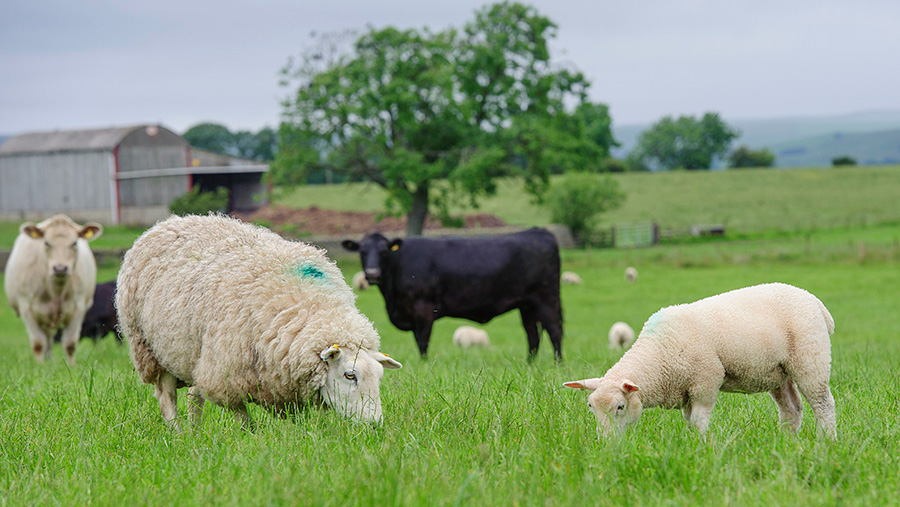Business Clinic: VAT rules for diverse business income
 © FLPA/Rex/Shutterstock
© FLPA/Rex/Shutterstock Farmers Weekly’s Business Clinic experts offer free advice on legal, finance, tax, insurance, farm management and land issues.
Here Sam Kirkham – partner, Albert Goodman – offers guidance on VAT rules for diverse business income.
See also: Business Clinic: Why do farm profit and taxable profit differ?
Q I am a sheep and beef farmer with two let cottages and a contracting business.
My business is complicated from a VAT point of view but I do not understand it all. Also, my son has started a new contract rearing business for a neighbour; does this have VAT implications?
A It is common to have a farming business which has a mixture of VAT supplies. In this case the sale of sheep and beef is zero-rated, contracting is standard-rated while the let cottage rents are exempt from VAT. Therefore the business is partially exempt.
In these cases partial exemption calculations have to be performed on each VAT return together with an annual calculation. This is because VAT on the expenditure in relation to the exempt activities strictly cannot be reclaimed. A business which only makes exempt supplies would not be allowed to be VAT registered.

Sam Kirkham, Partner, Albert Goodman
With a mixed business, which can be VAT registered, there is potential to reclaim all or some of the VAT on expenditure in relation to the exempt rental activity. However, partial exemption calculations have to be performed to calculate the amount of VAT that can be reclaimed.
The calculations involve attributing VAT on expenditure into three categories:
- Costs attributable directly to taxable supplies (beef, sheep and contracting)
- Costs attributable directly to exempt supplies (rents)
- Non-attributable costs often referred to as common, or pot – in relation to all activities.
The VAT is always 100% recoverable on the items relating to the taxable supplies, subject to the normal VAT rules.
The VAT relating to common costs is allocated between taxable and exempt based on a percentage of the total value of taxable and exempt supplies you have made during the month/quarter/year.
The amount that relates to taxable supplies can be recovered, but the amount relating to exempt supplies has to be added to the VAT that has already been directly attributable to exempt supplies.
The VAT on exempt supplies then becomes subject to two thresholds known as de-minimis limits. If both tests are met, the VAT can be recovered. The tests are:
1. That it is less than £625 a month (£1,875 a quarter/£7,500 a year) and
2. It is less than 50% of total VAT incurred.
A lot of smaller businesses find they can meet the first test, as you would need to spend £37,500 net of VAT on the exempt activities (rental business) to incur £7,500 of input tax, but find they often struggle to meet the second.
Assuming your son’s business is a separate trading activity, he should consider using the flat-rate scheme.
He would charge the usual 20% VAT on his invoices, which the neighbour can reclaim, however, when he does his bookkeeping, a lower flat rate (2-12%) is applied to his gross (VAT included) income and this is the amount paid to HMRC.
There is often a VAT benefit for contract rearing businesses to be on the flat-rate scheme, particularly where there is little VAT to reclaim on expenditure.
See all of the Business Clinic questions and answers.
Do you have a question for the panel?
Outline your legal, tax, finance, insurance or farm management question in no more than 350 words and Farmers Weekly will put it to a member of the panel. Please give as much information as possible.
Send your enquiry to Business Clinic, Farmers Weekly, RBI, Quadrant House, The Quadrant, Sutton, Surrey SM2 5AS.
You can also email your question to fwbusinessclinic@rbi.co.uk.

